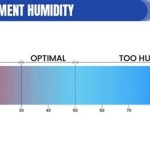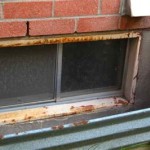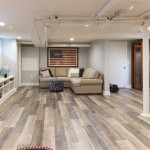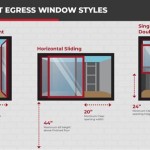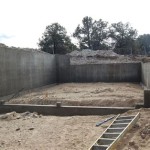Essential Aspects of Choosing the Best Moisture Barrier for Basement Walls
Moisture intrusion in basement walls is a common problem that can lead to a variety of issues, including mold growth, structural damage, and high humidity levels. To prevent these problems, it is essential to install a moisture barrier on the exterior walls of your basement. There are several different types of moisture barriers available, each with its own advantages and disadvantages. The best type of moisture barrier for your basement will depend on a variety of factors, such as the climate you live in, the condition of your basement walls, and your budget. ### Types of Moisture Barriers The three main types of moisture barriers are: *Asphalt-based:
Asphalt-based moisture barriers are made from a mixture of asphalt and other materials, such as fiberglass or polyester. They are applied to the exterior of the basement walls in a liquid form, and they then dry to form a waterproof seal. Asphalt-based moisture barriers are relatively inexpensive and easy to install, but they can be damaged by UV rays and extreme temperatures. *Polyethylene:
Polyethylene moisture barriers are made from a thin sheet of plastic. They are installed on the exterior of the basement walls using adhesive or mechanical fasteners. Polyethylene moisture barriers are very effective at preventing moisture intrusion, but they can be easily damaged by punctures or tears. *Cementitious:
Cementitious moisture barriers are made from a mixture of cement and other materials, such as sand and gravel. They are applied to the exterior of the basement walls in a slurry form, and they then dry to form a hard, waterproof surface. Cementitious moisture barriers are very durable and effective, but they are also more expensive and difficult to install than other types of moisture barriers. ### Factors to Consider When Choosing a Moisture Barrier When choosing a moisture barrier for your basement walls, you should consider the following factors: *Climate:
The climate you live in will affect the type of moisture barrier you need. If you live in a cold climate, you will need a moisture barrier that is resistant to freezing and thawing. If you live in a warm climate, you will need a moisture barrier that is resistant to UV rays and extreme heat. *Condition of Basement Walls:
The condition of your basement walls will also affect the type of moisture barrier you need. If your basement walls are in good condition, you may be able to get away with a less expensive moisture barrier. If your basement walls are cracked or damaged, you will need a more durable moisture barrier. *Budget:
The cost of a moisture barrier will vary depending on the type of moisture barrier you choose and the size of your basement. You should factor the cost of the moisture barrier into your budget when choosing a type of moisture barrier. ### Installation of a Moisture Barrier Once you have chosen a moisture barrier, you will need to install it on the exterior of your basement walls. The installation process will vary depending on the type of moisture barrier you choose. However, there are some general steps that you can follow for all types of moisture barriers: 1. Clean the exterior of your basement walls to remove any dirt or debris. 2. Apply the moisture barrier to the exterior of your basement walls according to the manufacturer's instructions. 3. Cover the moisture barrier with a layer of soil or gravel to protect it from damage. ### Maintenance of a Moisture Barrier Once you have installed a moisture barrier on your basement walls, you will need to maintain it to ensure that it continues to work effectively. The maintenance process will vary depending on the type of moisture barrier you choose. However, there are some general tips that you can follow for all types of moisture barriers: * Inspect the moisture barrier regularly for any signs of damage. * Repair any damage to the moisture barrier immediately. * Keep the area around the moisture barrier clean and free of debris. By following these tips, you can help to ensure that your basement walls remain dry and free from moisture damage.
Be Sure To Use A Moisture Barrier When Building Out Your Basement

How To Select A Moisture Barrier That Works For You Budget Dry Waterproofing

Basement Wall Vapor Barrier System In Stamford Norwalk West Hartford Retardant Ct

How Should I Finish An Existing Basement Wall Jlc Online

How To Install A Basement Vapor Barrier Hgtv

Fixing Moldy Basements Vapor Barriers Can Be A Bad Idea

Understanding Vapor Barriers The Green Cocoon

No Vapor Retarders On Interior Side Of Air Permeable Foundation Insulation Building America Solution Center

Vapor Barriers For Basements And Crawlspaces Greenbuildingadvisor

Basement Wall Vapor Barrier System In Stamford Norwalk West Hartford Retardant Ct
See Also

